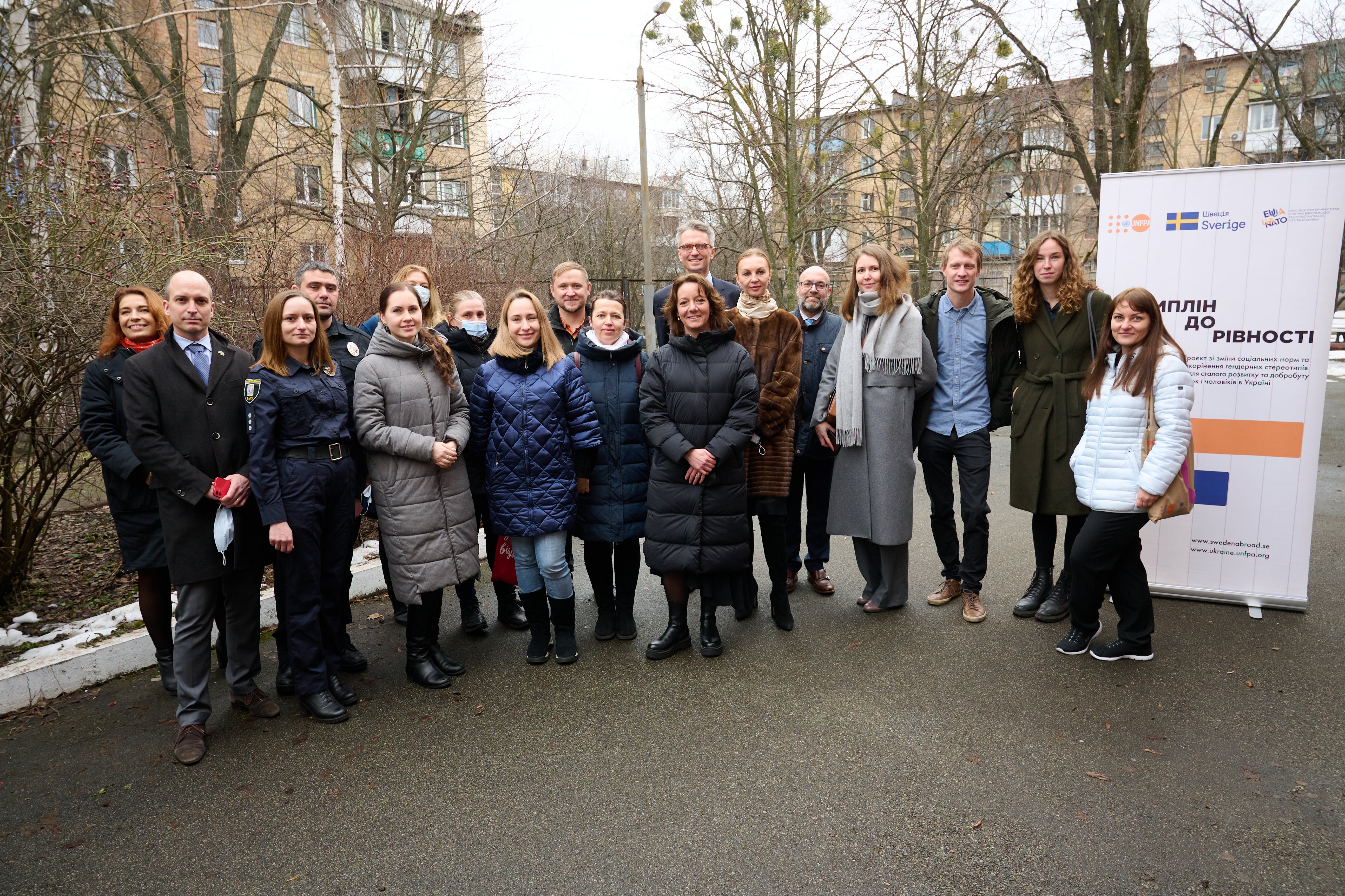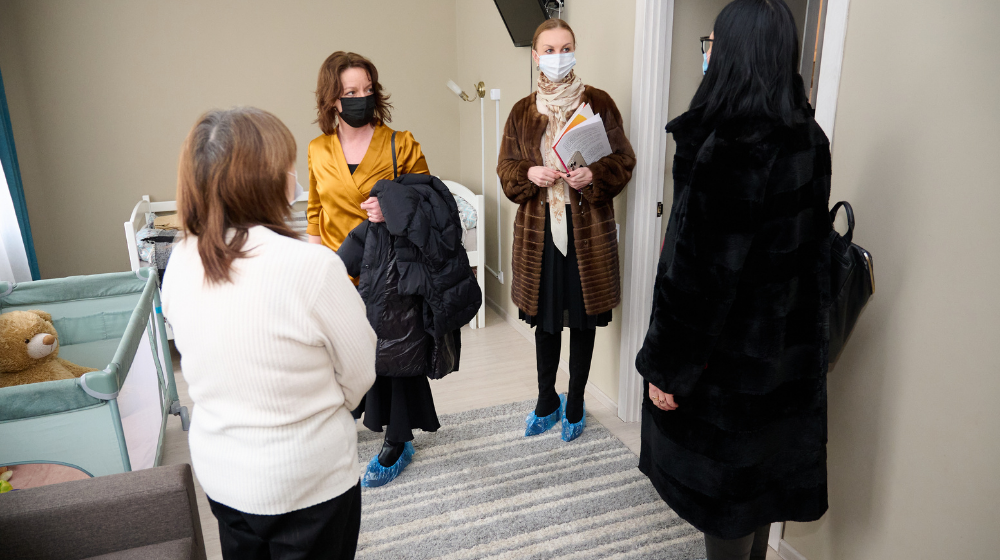On 11 February 2022 Matilda Ernkrans, the Minister for International Development Cooperation of Sweden, and Tobias Thyberg, Ambassador Extraordinary and Plenipotentiary of Sweden to Ukraine, visited the Crisis Room for Domestic Violence Survivors in Kyiv funded by UNFPA with support of the British Embassy. In 2021 with financial support from Sweden within the three-year project "Springboard to Equality" UNFPA opened similar crisis rooms in Ternopil, Lutsk, Chernivtsi and Uzhhorod. In 2022 Sweden will continue to support the development of a crisis response system to domestic violence and will open jointly with UNFPA 5 more crisis rooms in Zaporizhia, Khmelnytsky, Zhytomyr, Kropyvnytskyi and Lviv.
In the crisis room, survivors can receive shelter from perpetrators for up to 10 days, as well as psychological and legal support. In order to use the services of the crisis room, GBV survivors need to contact the police or social services. Crisis rooms guarantee women 24-hours care and, if necessary, provide the opportunity to use the services of a shelter where women can receive services for up to 3 months. Crisis rooms meet all sanitary and hygienic standards, have a kitchen and everything necessary for temporary residence, as well as adapted to accommodate people with disabilities and children of all ages. Rooms' addresses are not disclosed for security reasons.
“Violence against women and girls is one of the most widespread human rights violations in the world. It has no social, economic or national limits. The lack of social and economic independence for women and girls increases their vulnerability to violence and reduces their ability to develop their potential and break the circle of violence. That is why the creation of crisis rooms and economic empowerment of women play a great role in responding to and prevention of domestic violence”, Matilda Ernkrans, the Minister for International Development Cooperation of Sweden stated.
Also, during the visit, Matilda Ernkrans and Tobias Tiberg had the opportunity to talk to women who took courses and received a new specialty in IT. This initiative is being implemented by UNFPA in collaboration with the Beetroot Academy IT School in frames of the "Springboard to Equality" Project. Currently, 53 female course participants have already received certificates and have found or are in the process of looking for a job in IT companies. By the end of 2022, about 400 more women who survived domestic violence or are in complex life circumstances will be trained.

“In Ukraine, the attitude towards domestic violence is changing every year. The vast majority of people currently disagree with the position that domestic violence is a personal issue. They believe that this is a social problem. Our role is to make a sustainable contribution to addressing this issue in a systematic way, such as crisis room assistance and training of staff working with survivors”, Tobias Thyberg, Ambassador Extraordinary and Plenipotentiary of Sweden to Ukraine said.
“According to UNFPA study, every fifth woman in Ukraine experienced at least one type of violence from her partner. Therefore, this problem requires special attention and joint efforts of national and international actors to overcome it”, Jaime Nadal, UNFPA Representative to Ukraine claimed.
Additional information
The UNFPA, United Nations Population Fund, works to promote gender equality, reproductive health and rights and youth empowerment. Together with partners, UNFPA works in 150 countries and territories. Represented in Ukraine since 1997, UNFPA works to achieve equality, combat gender stereotypes, empower women, and ensure equal distribution of housework, and men's engagement to responsible fatherhood. For more information about UNFPA and its work in Ukraine, visit: www.ukraine.unfpa.org Follow us on Twitter and Facebook.
Equality to Springboard Project funded by Sweden and supported by the Office of Deputy Prime Minister for European and Euro Atlantic Integration of Ukraine aims to boost the process of social norms change and withdrawal from gender stereotypes in education, at work, at home and in community life and create a supportive environment and growing public demand for advancing equal rights and opportunities for women and men in Ukraine. For more information https://www.youtube.com/watch?v=wdm1eKAVnB4


